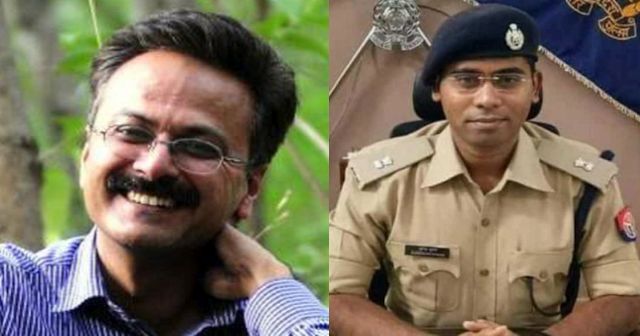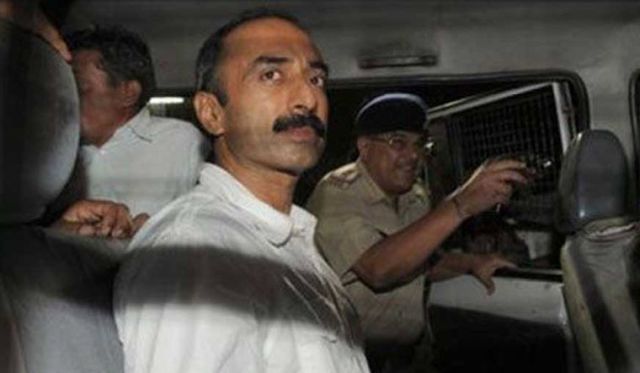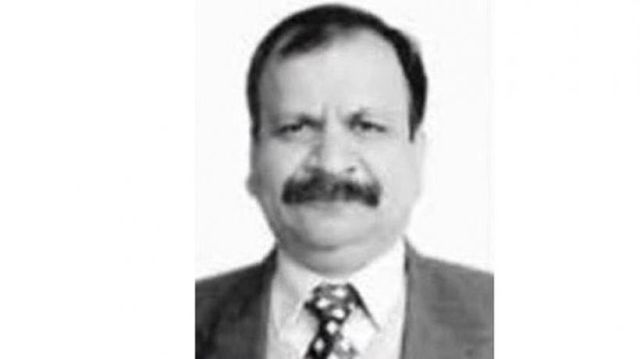
Suicides by 2 IPS officers in 5 months rattles UP Police
Lucknow : Suicides, between May and September, by two of its bright officers — one with the anti-terror squad (ATS) and the other posted as SP (East) in Kanpur — has rattled the Uttar Pradesh Police, one of the largest such forces in the country.
It also raises the question — as it does for other non-military forces around the nation — whether the men in khaki are overworked, stressed from having to meet unrealistic targets from political bosses and unable to balance their professional and personal lives.
Rajesh Sahni, a highly-decorated Indian Police Service (IPS) officer, posted as an Additional SP with the ATS, pulled the trigger on himself at his office in the upscale Gomtinagar neighbourhood of the state capital on May 29. Surendra Kumar Das, a 2014 batch IPS officer, swallowed an overdose of sulfa drugs on September 6 and died three days later. The reasons for taking the extreme step are not known yet, but colleagues say both were “stressed”, albeit for “different reasons”.
Director General of Police (DGP) O.P. Singh, who on September 8 visited the 30-year-old Das at a private hospital in Kanpur where he was battling for life, conceded that the force was in a “high level of stress”. While officers have for long been privately complaining of “heavy volume of work”, “endless work hours”, “ruined personal lives” and “demanding bosses”, the pressure on the police suddenly seems to have pushed people to the brink.
With the state government setting targets for the force so as to portray itself as a “different government which hounds out criminals”, a senior officer told IANS on condition of anonymity that “working was tougher than ever before”. The suicides were a fallout of such pressures, he added.
“The political class, past and present, fails to understand the situation on the ground and the difficulties we face… it is madly after results,” rues another SSP-level officer in eastern Uttar Pradesh. The desperation, be it personal or professional, “to get out of the rut even if it means dying” can be gauged from the fact that Das “Googled ways to die”, a colleague said.
Former DGP Vikram Singh, who served for three long years under a “tough and demanding Mayawati” also admited that high political stakes force policemen to get stressed. “The police, in any case, has been very overworked and growing crimes, shifting crime patterns and modus operandi add to our woes,” he added.
He regretted that owing to a host of issues like no holidays, lack of sleep, the sinking feeling of failure, public treatment of policemen with contempt, indifference of political bosses and almost no connect with superiors has led to an alarming fall in tolerance levels.
“We, as young officers, have worked with the likes of the legendary B.S. Bedi; they all were so connected and concerned about the well-being of their subordinate officers… sadly the joint family of police has broken,” Vikram Singh added.
Another former DGP, K.L. Gupta, said the police has become a “Draupadi” who is answerable to politicians, the public, RTI queries, courts and human rights activists.
“There certainly are forces that pull down one’s self-esteem and family discord is one reason for such steps,” he told IANS.
Brij Lal, another former DGP and currently chairman of the Uttar Pradesh SC/ST Commission, said he knows of many cases since 1981 when police officiers took the extreme step due to marital discord. He, however, added that the force was certainly overworked and needed solutions fast and quick.
Sri Ram Arun, another decorated and very respected former DGP, said that pulls and pressures in the police service “now-a-days is more than ever before”.
“There is political pressure from all sides; officers are transferred on a whim,” he maintained, adding that to sort out the mess, the policemen need to stand up against wrongs, and balance their personal and professional lives — while the political masters need to understand that “better policing can only be achieved through a better and cordial relationship with the police and its officers”.
Many serving officers IANS spoke to said they were concerned about the spate of such sad events and suggested that annual mental profiling, as is the case in police forces in many countries, and even in some para-military forces, was one way to prevent such incidents. They also felt that old-style policing and better camaraderie between the seniors and junior staff was a must as well, along with a certain improvement in working conditions.
(Mohit Dubey can be contacted at mohit.d@ians.in)
—IANS


